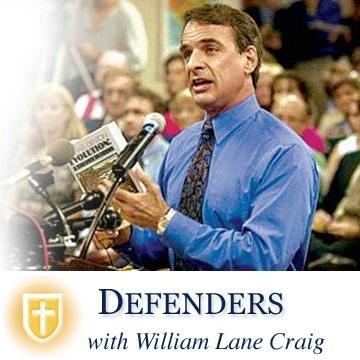Defenders: Doctrine of Creation (Part 14): Arguments Against Miracles
Defenders Podcast
William Lane Craig
4.7 • 724 Ratings
🗓️ 10 July 2024
⏱️ 37 minutes
🧾️ Download transcript
Summary
Transcript
Click on a timestamp to play from that location
| 0:00.0 | Welcome to Defenders, the teaching class of Dr. William Lane Craig. |
| 0:05.0 | Today, the Doctrine of Creation, Part 14. |
| 0:09.0 | For more information and resources from Dr. Craig, go to reasonable faith.org. |
| 0:15.0 | The roots of the 19th century collapse in the belief in miracles among biblical theologians lay in the 18th |
| 0:24.9 | century and even earlier. The skepticism of modern man with regard to miracles arose during |
| 0:32.7 | the Enlightenment or the so-called age of reason which dawned in Europe in the 17th century. |
| 0:42.1 | The attack upon miracles was led by the deists. |
| 0:47.7 | Deists believed in the existence of God, as well as his conservation of the world in being, and as general revelation in nature, |
| 0:59.0 | but they denied that he had revealed himself in any special way in the world. |
| 1:06.5 | They were therefore very exercised to demonstrate the impossibility of the occurrence of miracle, |
| 1:13.6 | or at least of the identification of miracle. |
| 1:19.0 | They were, in turn, countered by a barrage of Christian apologetic literature, |
| 1:26.4 | defending the possibility and evidential value of miracle. |
| 1:32.0 | And today we want to examine some of the principal arguments used by the deists against miracles. |
| 1:41.4 | First, the Newtonian world Machine. Although the most important philosophical opponents of the belief in miracles were |
| 1:53.0 | Benedict de Spinoza and David Hume, much of the debate was conducted against the backdrop of the mechanical worldview of Newtonian physics. |
| 2:05.6 | Isaac Newton, in his philosophier naturalis, principia mathematics, or mathematical principles of natural philosophy, that is to say, of science in the 17th century, |
| 2:30.2 | 18th century, science was called natural philosophy. |
| 2:34.0 | So Newton's treatise published in 1687 was on the |
| 2:41.7 | mathematical principles of natural philosophy. And by explaining the world in terms of his |
| 2:50.2 | famous three laws of motion, together with some definitions, |
| 2:55.6 | Newton was able to deduce the corollaries and theorems of his physics. |
... |
Please login to see the full transcript.
Disclaimer: The podcast and artwork embedded on this page are from William Lane Craig, and are the property of its owner and not affiliated with or endorsed by Tapesearch.
Generated transcripts are the property of William Lane Craig and are distributed freely under the Fair Use doctrine. Transcripts generated by Tapesearch are not guaranteed to be accurate.
Copyright © Tapesearch 2025.

